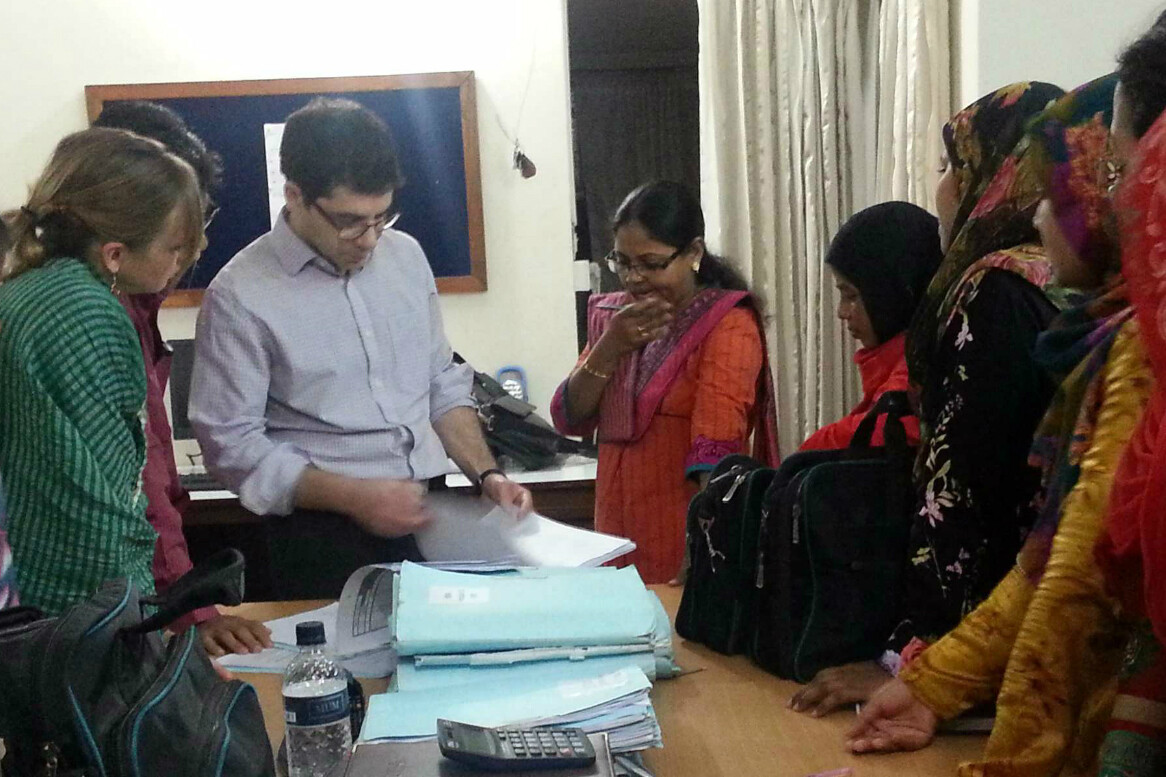Mobile Menu
- Education
- Research
-
Students
- High School Outreach
- Undergraduate & Beyond: Community of Support
- Current Students
- Faculty & Staff
- Alumni
- News & Events
- Giving
- About

Vitaly Kazakov
 Many of the researchers at the Centre for Child Nutrition, Health and Development work internationally to find answers to global health challenges. Daniel Roth, an Assistant Professor in the Departments of Paediatrics and Nutritional Sciences, and a paediatrician and scientist at The Hospital for Sick Children, is one such researcher. His work explores the determinants and consequences of vitamin D deficiency during pregnancy in South Asia.
Many of the researchers at the Centre for Child Nutrition, Health and Development work internationally to find answers to global health challenges. Daniel Roth, an Assistant Professor in the Departments of Paediatrics and Nutritional Sciences, and a paediatrician and scientist at The Hospital for Sick Children, is one such researcher. His work explores the determinants and consequences of vitamin D deficiency during pregnancy in South Asia.
At the moment, Roth is leading a large clinical trial of maternal vitamin D supplementation in Dhaka, Bangladesh. “I am particularly interested in the effects of vitamin D supplementation in pregnant women on the growth of their babies in the first years of life,” he says.
This is relevant to countries like Bangladesh that have high rates of stunting - impaired growth of infants and children. “Because of various factors, including lifestyle and diet, vitamin D deficiency is common among women in Bangladesh. In this setting, there may be multiple benefits of improving vitamin D nutrition during pregnancy for both the mother and her child.”
While Roth’s research specifically targets resource-poor settings, he hopes that the new knowledge will be applicable around the world. “We are trying to understand fundamentally just how important vitamin D is during pregnancy. However, we are focused on Bangladesh because it’s a setting in which the effects of vitamin D deficiency for mothers and the development of their children may be particularly pronounced.”
In fact, average vitamin D levels in pregnant women in Canada during winters are not that different from women in Bangladesh. “Although we don’t have the same burden of nutritional problems or growth failure in infants here, there may be other benefits of improving vitamin D status in pregnant women in Canada.”
Roth hopes the Centre helps to tackle the most important underlying issues leading to childhood malnutrition and obesity. “As biomedical researchers, we tend to focus on relatively small components of larger issues,” he says. “Yet, most childhood nutritional problems are ultimately determined by socioeconomic inequalities and structural factors in society – whether in our own city, country or internationally – that lead to inequitable access to health resources and care.”
Overall, Roth is grateful that his research contributes to the professional development of many people involved with the implementation of the project in Bangladesh. “Through our partner organization in Dhaka – icddr,b – we can create opportunities and build capacity among individuals including research physicians and community health workers. Also, the mothers and children who volunteer to participate in the research benefit a lot from the close attention to their health care needs by the study team. If our research eventually generates new ideas that have a lasting value for public health, then that will be a bonus.”

